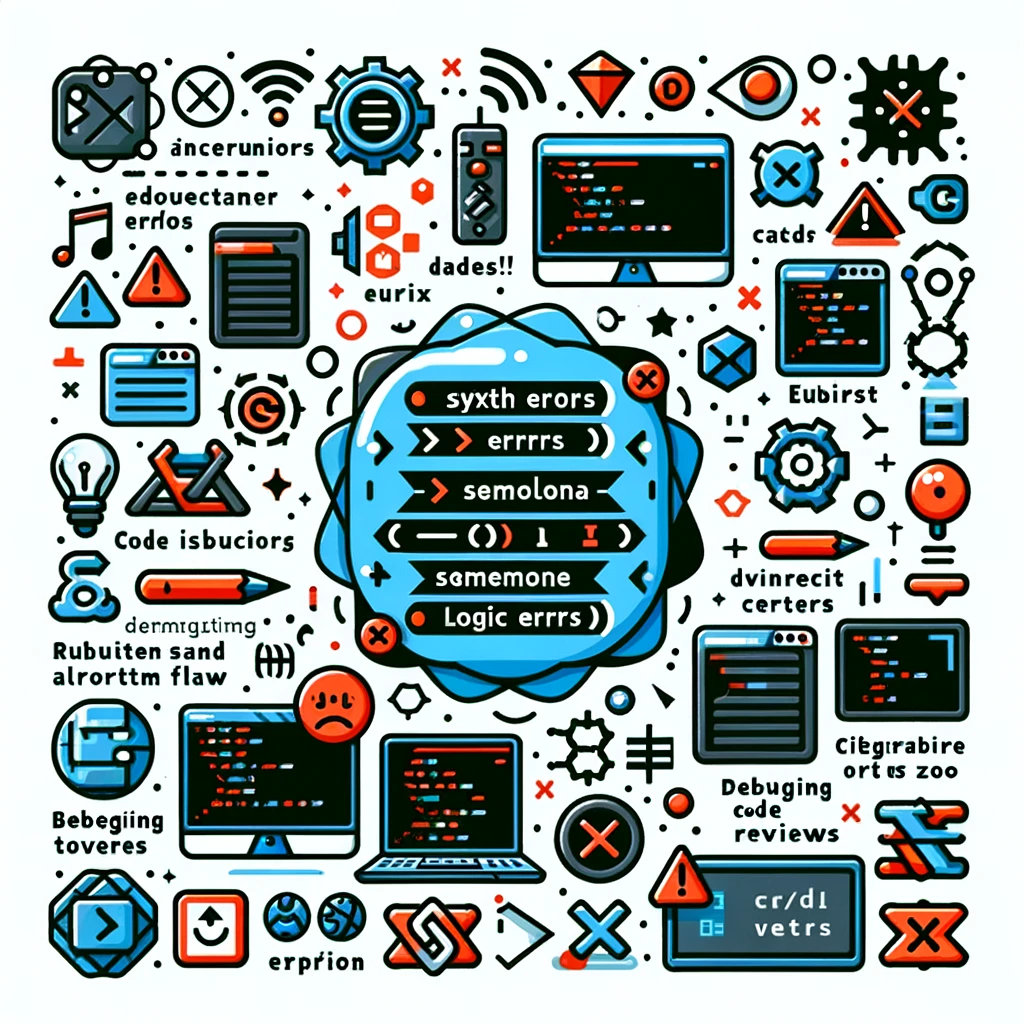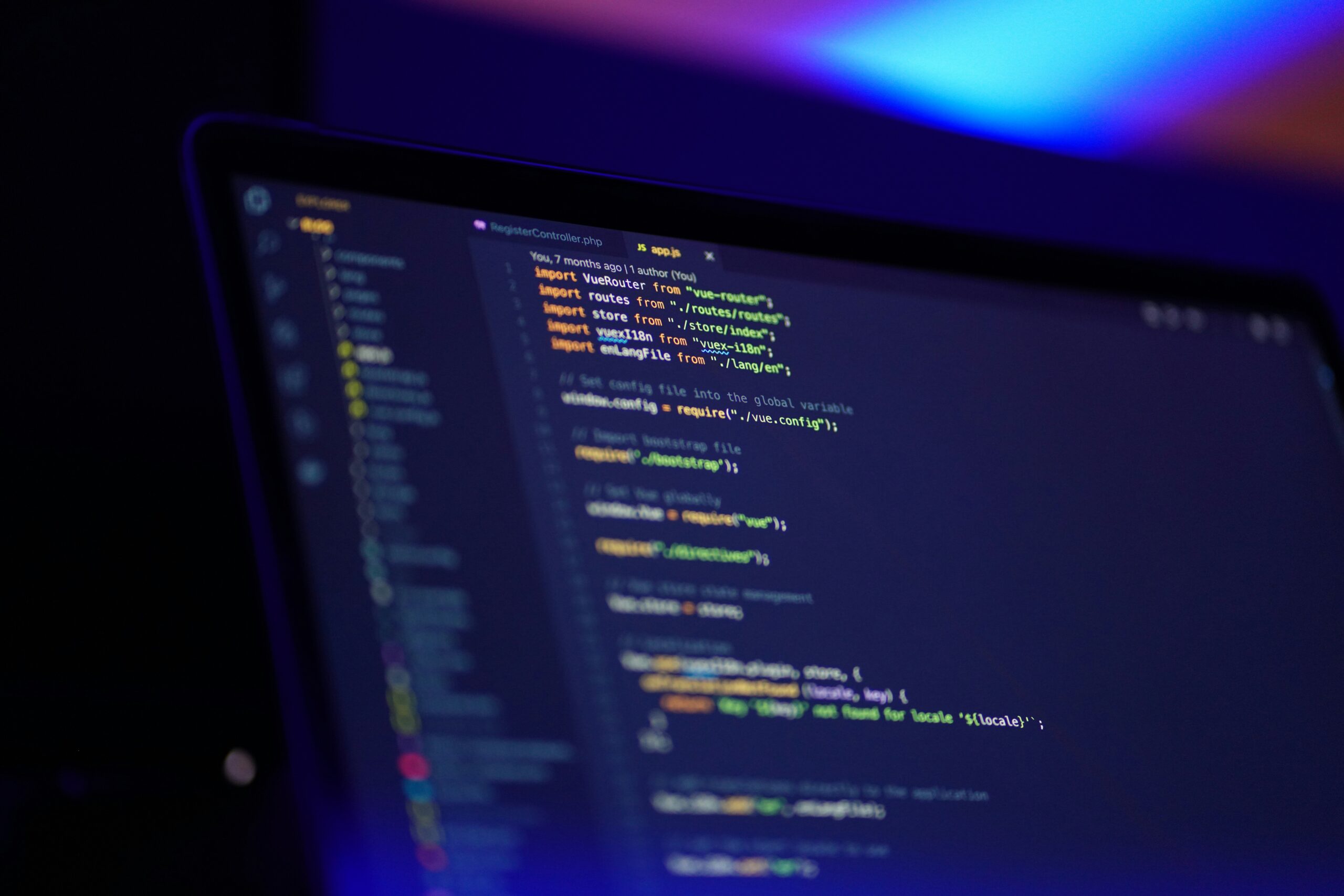Understanding Common Programming Errors
Programming errors are mistakes or misunderstandings made by programmers during the development of software that can lead to unintended behavior or system failures. Recognizing these errors is vital for creating efficient and functional programs. There are three primary categories of programming errors: syntax errors, runtime errors, and logic errors.
Syntax errors occur when the programmer deviates from the rules of the programming language. This type of error often involves misspellings, missing punctuation, or incorrect command usage, causing the code to be unrecognizable to the compiler or interpreter. For example, failing to close a parenthesis or using an incorrect variable name will typically result in a syntax error. Such errors are usually caught at the compile time or when the code is first run, making this category relatively straightforward to identify and fix.
More
Runtime errors arise during the execution of a program, typically when the code encounters an unexpected condition that prevents it from continuing. These errors can occur for various reasons, such as dividing by zero, attempting to access an array element that does not exist, or using incompatible data types. For instance, an attempt to access a null reference would lead to a runtime error, causing the program to crash or behave unpredictably. Detecting runtime errors can be more challenging as they can depend on user inputs or external factors that are not apparent at the initial coding stage.
Logic errors are perhaps the most insidious type of programming error. Unlike syntax and runtime errors, logic errors do not impede the execution of a program; instead, they result in incorrect output or unintended behavior. These errors stem from flawed reasoning or miscalculations within the code. For example, using an incorrect formula to compute a value or placing conditional statements in the wrong order may yield results that seem plausible on the surface but are fundamentally flawed. Understanding these different types of programming errors is crucial, as it equips programmers to recognize and remedy their mistakes effectively, thereby enhancing their coding practices.
Top Common Programming Mistakes
Programming is a complex task that requires attention to detail and an understanding of logical structures. Unfortunately, even experienced programmers can fall victim to common mistakes that can lead to significant issues in their code. One frequent error involves using incorrect variable names. This often stems from typographical mistakes or a lack of consistency in naming conventions. If a variable is referenced inconsistently, it can lead to confusion or unexpected behavior in the software, making debugging a tedious process.
Another prevalent mistake is forgetting to close brackets, which can occur in any programming language that utilizes brackets for structure, such as C, Java, or Python. Leaving brackets open can result in compilation errors or runtime failures. Bracket mismatches disrupt the flow of logic within the code, leading to confusing error messages that may not clearly indicate the root of the problem.
Other
Off-by-one errors are also a notable source of programming mistakes, particularly in loop structures. These errors typically happen when the programmer miscalculates the number of iterations required, resulting in extra or missing iterations. For example, if a loop is intended to iterate from 0 to 10 but is mistakenly set to go from 1 to 10, it will miss processing the zero index entirely. This seemingly small mistake can produce unexpected results and can be particularly insidious when working with arrays or lists, where the first element is often zero-indexed.
Lastly, overlooking the handling of edge cases can prove detrimental. Developers often focus on the primary functionality of their code and neglect to consider how it will behave under unexpected conditions. This oversight can lead to crashes or incorrect outputs when the software encounters data that it wasn’t explicitly programmed to handle. By being aware of these common programming mistakes and taking the necessary precautions, programmers can enhance the reliability and performance of their software projects.

Best Practices to Avoid Programming Errors
Programming errors can lead to significant setbacks in software development. However, by adopting certain best practices, programmers can minimize these errors and enhance the overall quality of their code. One of the key practices is writing clear and concise code. Clear code, defined by good naming conventions and well-structured logic, can improve readability for both the original author and future developers. To maintain clarity, programmers should adhere to relevant coding standards and utilize meaningful comments to explain intricate sections of code without over-explaining straightforward logic.
Another effective practice is conducting regular code reviews. Code reviews provide an opportunity for developers to collaborate, share insights, and identify potential errors before the code is finalized. During a review, peers can offer constructive feedback, which fosters a better understanding of programming principles and exposes developers to different problem-solving approaches. Establishing a culture in which code reviews are viewed positively can encourage more meticulous coding habits and reduce the occurrence of errors.
Incorporating a version control system is also critical in minimizing programming errors. Version control allows developers to track changes, collaborate seamlessly with team members, and revert back to previous states of the code when necessary. This practice not only boosts productivity but also offers a safety net, as it helps to manage and mitigate risks associated with coding errors.
Lastly, mastering debugging techniques is essential for any programmer. Effective debugging involves systematically investigating code to identify and resolve issues. Programmers should familiarize themselves with various debugging tools and methods, such as breakpoints and logging, which can aid in pinpointing the root causes of errors. By developing a habit of thorough testing and continuous learning from debugging experiences, developers can cultivate more robust programming practices.
Tools and Resources for Error Prevention
As programming continues to evolve, so does the array of tools and resources available for developers aiming to minimize errors in their code. Integrated Development Environments (IDEs) have become a cornerstone in this effort, equipped with features like code linters and debuggers that play a crucial role in error prevention. Code linters analyze source code for potential errors, enforcing coding standards and improving code quality before runtime. By catching problems early in the development process, they significantly reduce the likelihood of extensive debugging later.
Debuggers, on the other hand, allow developers to execute their code one step at a time, making it easier to identify and resolve errors as they arise during execution. Most modern IDEs come with built-in debugging tools that provide features such as breakpoints, variable inspection, and step-through execution. Effective usage of these tools can greatly aid in pinpointing logical errors and runtime issues that otherwise might go unnoticed.
Beyond IDE features, various online resources are integral for continuous learning and improvement in programming skills. Websites like Codecademy and freeCodeCamp offer interactive lessons on various programming languages, helping developers to refresh their knowledge and learn best practices. Forums and communities such as Stack Overflow provide a platform for programmers to discuss problems, share solutions, and seek advice from experienced peers.
Conclusion
Moreover, version control systems like Git not only serve as a means for collaboration but also facilitate better tracking of changes, enabling developers to revert back to previous versions of their code in the event of an error. Leveraging all these tools and resources effectively fosters a culture of improvement and preparedness amongst developers, thus enhancing their ability to catch and prevent errors throughout the software development lifecycle.
Read Our Latest Blog
Emerging Technologies Every BCA Student Should Know
Phone Number: +91-7488456170
Email ID: abhishek@eepl.me
Our Platforms:
Digilearn Cloud
EEPL Test
Live Emancipation
Follow Us on Social Media:
Instagram – EEPL Classroom
Facebook – EEPL Classroom
Stay connected and keep learning with EEPL Classroom !








